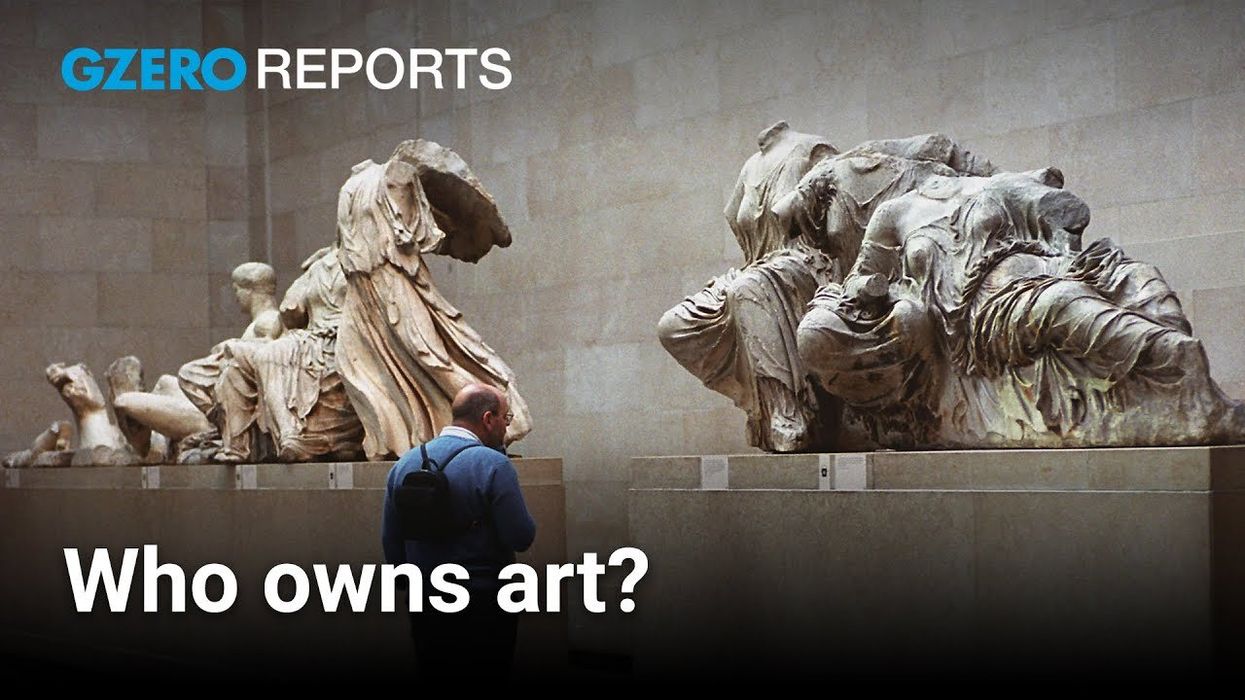VIDEOSGZERO World with Ian BremmerQuick TakePUPPET REGIMEIan ExplainsGZERO ReportsAsk IanGlobal Stage
Site Navigation
Search
Human content,
AI powered search.
Latest Stories
Sign up for GZERO Daily.
Get our latest updates and insights delivered to your inbox.
Global Stage: Live from Davos
WATCH
GZERO Reports
Our journalists bring you on-location video reports digging into news stories around the world.
Presented by
Who gets to claim art as their own? It’s a complicated issue, and elite art institutions are undergoing a reckoning over their Indiana Jones-style acquisition tactics of the past. GZERO’s Alex Kliment explores the complex debate of art repatriation and the controversy surrounding ancient artifacts displayed in Western museums. One of the most infamous cases involves the Parthenon Marbles (sometimes called the Elgin Marbles) at the British Museum, which the British took during Ottoman rule. The Greeks have been demanding the Marbles be returned for almost 200 years.
“I think this is really a moral or ethical case,” says Leila Amineddoleh, an art repatriation expert, “Should museums hold onto objects that were taken under either violent circumstances or were taken during a time of looting, theft or when a country was colonized?”
This question of who owns art has become more intensely political in recent years. On one side are the defenders of the “Universal Museum” idea, who say it’s important to have places where everyone can come see art from all over the world in one place. However, critics argue it’s a form of cultural imperialism that denies rightful ownership to the people who created the artifacts in the first place. Ultimately, the debate raises broader questions about museums' responsibility to address historical injustices, balance cultural preservation with global accessibility, and navigate the complex dynamics of ownership and cultural heritage.
Watch the GZERO World with Ian Bremmer episode: The identity politics trap
Catch GZERO World with Ian Bremmer every week at gzeromedia.com/gzeroworld or on US public television. Check local listings.
Keep reading...Show less
More from GZERO Reports
GZERO Reports
Nov 13, 2025
In Milei's Argentina, a fight for indigenous land
August 27, 2025
The fight for democracy against “Europe’s last dictator”
February 19, 2025
GZERO Series
GZERO Daily: our free newsletter about global politics
Keep up with what’s going on around the world - and why it matters.















